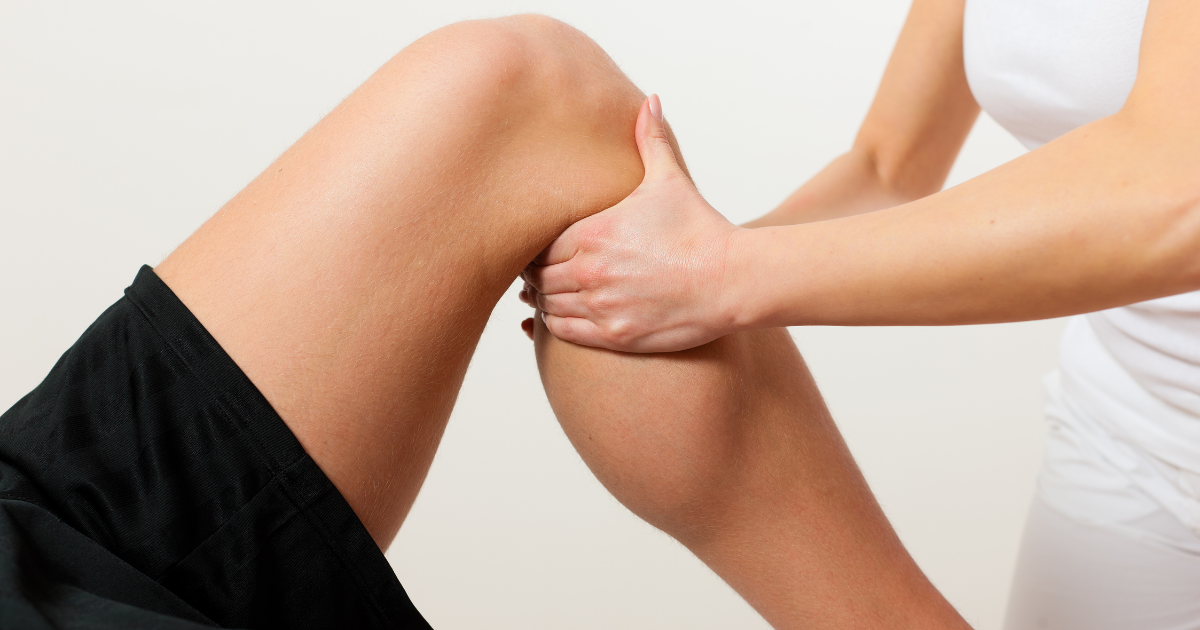Knee rheumatoid arthritis is a chronic autoimmune condition that causes pain, swelling, and stiffness in the knee joints. Unlike osteoarthritis, which occurs due to wear and tear, rheumatoid arthritis develops when the immune system mistakenly attacks the joint lining, leading to inflammation and joint damage over time.
This blog explores knee rheumatoid arthritis, including its symptoms, causes, and treatment options. Understanding the condition is the first step toward effective management. Whether experiencing symptoms or supporting a loved one, this guide provides valuable insights into living better with knee rheumatoid arthritis.
Understanding Knee Rheumatoid Arthritis
Knee rheumatoid arthritis is a type of inflammatory arthritis that primarily affects the synovial membrane in the knee joint. The inflammation leads to joint damage, cartilage loss, and, over time, significant mobility issues. Since rheumatoid arthritis is systemic, it can affect both knees and even other joints in the body.
Symptoms of Knee Rheumatoid Arthritis
Recognizing the symptoms of knee rheumatoid arthritis early is crucial for timely intervention. Some of the most common symptoms include:
- Persistent Pain – Unlike temporary knee pain from injury, rheumatoid arthritis pain is chronic and worsens over time.
- Swelling and Redness – The immune response triggers inflammation, causing the knee joint to swell and appear red.
- Morning Stiffness – One of the hallmark signs is stiffness that lasts for more than 30 minutes after waking up.
- Limited Mobility – As the disease progresses, knee movement becomes restricted, making daily activities difficult.
- Warmth Around the Joint – The inflamed joint often feels warm to the touch due to ongoing inflammation.
- Fatigue and Weakness – Many patients experience general fatigue as a result of chronic inflammation.
If you are experiencing any of these symptoms persistently, it is essential to seek medical advice. Early diagnosis can help slow down disease progression and protect joint function.
Causes and Risk Factors of Knee Rheumatoid Arthritis
Potential Causes:
- Autoimmune Dysfunction: The immune system mistakenly attacks healthy joint tissues, leading to chronic inflammation.
- Genetic Predisposition: A family history of rheumatoid arthritis increases the likelihood of developing the condition.
- Hormonal Influence: The disease is more common in women, suggesting that hormonal factors may be involved.
- Infections or Environmental Triggers: Exposure to certain viruses, bacteria, or environmental toxins might trigger the onset of rheumatoid arthritis.
Risk Factors:
- Age: Although rheumatoid arthritis can occur at any age, it commonly begins between 30 and 60 years old.
- Gender: Women are more likely to develop knee rheumatoid arthritis than men.
- Smoking: Tobacco use has been linked to an increased risk of developing rheumatoid arthritis.
- Obesity: Excess body weight puts additional stress on the knee joints, potentially worsening the condition.
- Chronic Stress: Persistent stress may contribute to immune system dysfunction, triggering inflammation.
Diagnosis of Knee Rheumatoid Arthritis
Early diagnosis is key to managing knee rheumatoid arthritis effectively. As a rheumatologist, I use a combination of methods to confirm a diagnosis:
- Medical History & Physical Examination: Evaluating symptoms, joint tenderness, and swelling.
- Blood Tests: Checking for markers of inflammation such as rheumatoid factor (RF) and anti-CCP antibodies.
- Imaging Studies: X-rays, MRIs, and ultrasounds help assess joint damage and inflammation levels.
Knee Rheumatoid Arthritis Treatment
While there is no cure for knee rheumatoid arthritis, several treatment options can help manage symptoms and improve joint function.
1. Medications
- Nonsteroidal Anti-Inflammatory Drugs (NSAIDs): Help relieve pain and reduce inflammation.
- Disease-Modifying Antirheumatic Drugs (DMARDs): Slow disease progression and protect the joints from damage.
- Biologic Response Modifiers: Target specific parts of the immune system to reduce inflammation.
- Corticosteroids: Provide quick relief from severe inflammation but are not recommended for long-term use.
2. Physical Therapy and Lifestyle Changes
Regular exercise and physical therapy are crucial for maintaining knee joint flexibility and strength.
- Low-Impact Exercises: Activities like swimming, cycling, and yoga help improve joint mobility without excessive strain.
- Weight Management: Maintaining a healthy weight reduces stress on the knees and slows disease progression.
- Assistive Devices: Knee braces or orthotic shoes can help provide stability and reduce joint strain.
- Heat and Cold Therapy: Applying heat relaxes stiff joints, while cold packs reduce swelling and pain.
3. Surgical Options
For severe cases of knee rheumatoid arthritis where joint damage is extensive, surgery may be necessary.
- Synovectomy: Removing the inflamed joint lining to reduce pain and swelling.
- Knee Replacement Surgery: Replacing the damaged knee joint with an artificial one to restore mobility.
Best Exercises for Knee Rheumatoid Arthritis
Exercise is a crucial part of managing knee rheumatoid arthritis. While it may seem challenging to move painful joints, the right exercises can help maintain mobility, reduce stiffness, and strengthen the muscles supporting the knee.
- Stretching: Gentle stretching helps improve flexibility and reduces stiffness. Focus on hamstrings, quadriceps, and calf stretches to maintain knee mobility.
- Strength Training: Strengthening the muscles around the knee, such as the quadriceps and hamstrings, helps stabilize the joint and reduce strain.
- Water Exercises: Swimming and water aerobics are excellent options, as the buoyancy reduces stress on the joints while allowing full-range movement.
- Tai Chi & Yoga: These low-impact activities enhance balance, flexibility, and relaxation, reducing pain and stiffness in the knee.
- Low-Impact Cardio: Activities like walking, cycling, and elliptical training improve overall joint health without excessive strain.
- Range of Motion Exercises: Gentle movements like seated knee extensions and leg lifts help prevent stiffness and improve flexibility.
Tips for Safe Exercise:
- Start slow and increase intensity gradually.
- Use proper footwear to support knee stability.
- Listen to your body and stop if pain worsens.
- Incorporate rest days to prevent overuse injuries.
- Consult a rheumatologist or physical therapist before starting a new exercise program.
Staying active is essential for managing knee rheumatoid arthritis. The right exercises help maintain joint flexibility, reduce stiffness, and strengthen muscles, making daily movements easier. While knee pain may make exercise seem daunting, regular movement can prevent further joint damage and improve overall function.
Frequently Asked Questions (FAQs)
1. Can knee rheumatoid arthritis be cured?
No, but it can be managed effectively with medications and lifestyle changes.
2. Is knee replacement surgery always necessary?
Not always. Many patients find relief through non-surgical treatments.
3. What foods should I avoid with knee rheumatoid arthritis?
Processed foods, excessive sugar, and red meats may worsen inflammation.
4. Can weather changes affect knee rheumatoid arthritis?
Yes, cold and damp weather can increase stiffness and pain.
5. How can I prevent knee rheumatoid arthritis from getting worse?
Early diagnosis, regular exercise, medication adherence, and a healthy lifestyle can help slow progression.
Final Thoughts
Managing knee rheumatoid arthritis requires a proactive approach, but you are not alone. As a rheumatologist, my goal is to help patients navigate this journey with the right treatment strategies. If you are experiencing persistent knee pain or stiffness, don’t wait seek medical advice today. With proper care and support, you can maintain mobility, reduce discomfort, and improve your quality of life.





